Filter by
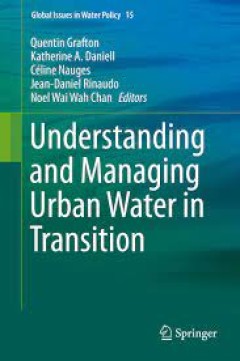
Understanding and Managing Urban Water in Transition
This book examines changes and transitions in the way water is managed in urban environments. This book originated from a joint French-Australian initiative on water and land management held in Montpellier, France. The book delivers practical insights into urban water management. It links scientific insights of researchers with the practical experiences of urban water practitioners to understan…
- Edition
- -
- ISBN/ISSN
- 978-94-017-9801-3
- Collation
- 37 b/w illustrations, 54 illustrations in colour
- Series Title
- -
- Call Number
- -
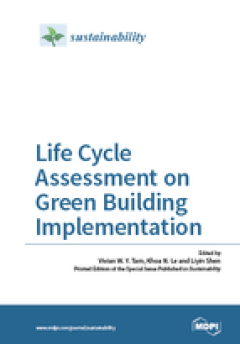
Life Cycle Assessment on Green Building Implementation
Greenhouse-gas emissions have become one of the most impacting environmental issues in today’s society. A rapidly increasing trend in global CO2emissions particularly since the early nineties (23.64% since 1990) has led to the generation of about 50,000 million tons of CO2–equivalent (eqv) worldwide in 2010. According to mainstream climate experts, the increasing concentration of greenhouse…
- Edition
- -
- ISBN/ISSN
- -
- Collation
- -
- Series Title
- -
- Call Number
- 628 LIF
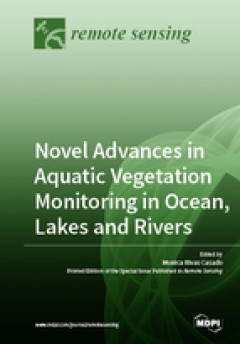
Novel Advances in Aquatic Vegetation Monitoring in Ocean, Lakes and Rivers
In recent decades, there has been an increase in the development of strategies for water ecosystem mapping and monitoring. Overall, this is primarily due to legislative efforts to improve the quality of water bodies and oceans. Remote sensing has played a key role in the development of such approaches—from the use of drones for vegetation mapping to autonomous vessels for water quality monito…
- Edition
- -
- ISBN/ISSN
- 978-3-03921-206-4
- Collation
- -
- Series Title
- -
- Call Number
- 628 NOV

Physiological Responses to Abiotic and Biotic Stress in Forest Trees
As sessile organisms, plants have to cope with a multitude of natural and anthropogenic forms of stress in their environment. Due to their longevity, this is of particular significance for trees. As a consequence, trees develop an orchestra of resilience and resistance mechanisms to biotic and abiotic stresses in order to support their growth and development in a constantly changing atmospheric…
- Edition
- -
- ISBN/ISSN
- -
- Collation
- -
- Series Title
- -
- Call Number
- 628 POL p
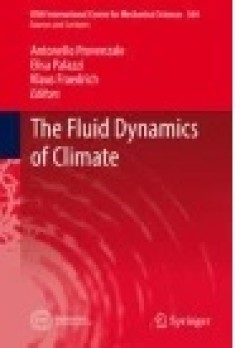
The Fluid Dynamics of Climate
This volume provides an overview of the fluid aspects of the climate system, focusing on basic aspects as well as recent research developments. It will bring together contributions from diverse fields of the physical, mathematical and engineering sciences. The volume will be useful to doctorate students, postdocs and researchers working on different aspects of atmospheric, oceanic and environme…
- Edition
- -
- ISBN/ISSN
- 978-3-7091-1893-1
- Collation
- VII, 209
- Series Title
- CISM International Centre for Mechanical Sciences
- Call Number
- -
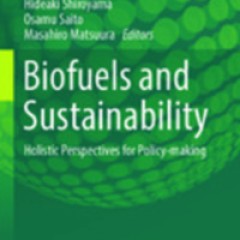
Biofuels and Sustainability : Holistic Perspectives for Policy-making
This open access book presents a comprehensive analysis of biofuel use strategies from an interdisciplinary perspective using sustainability science. This interdisciplinary perspective (social science-natural science) means that the strategies and policy options proposed will have significant impacts on the economy and society alike. Biofuels are expected to contribute to reducing greenhouse ga…
- Edition
- -
- ISBN/ISSN
- 978-4-431-54895-9
- Collation
- -
- Series Title
- -
- Call Number
- 628 BIO
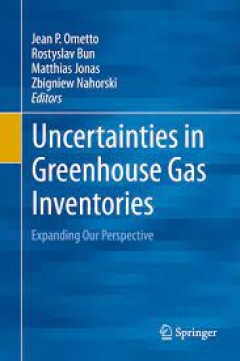
Uncertainties in Greenhouse Gas Inventories Expanding Our Perspective
This book is based on the 2014 Special Issue 124(3) of Climatic Change. It brings together 16 key papers presented at, or produced, subsequent to the 2010 (3rd) International Workshop on Uncertainty in Greenhouse Gas (GHG) Inventories. The Workshop was jointly organized by the Lviv Polytechnic National University, Ukraine; the Systems Research Institute of the Polish Academy of Sciences; and th…
- Edition
- -
- ISBN/ISSN
- 978-3-319-15901-0
- Collation
- XV, 240
- Series Title
- -
- Call Number
- -

How to Deal with Climate Change? :Institutional Adaptive Capacity as a Means …
As the evidence for human-induced climate change becomes more obvious, so too does the realisation that it will harshly impact on the natural environment as well as on socio-economic systems. Addressing the unpredictability of multiple sources of global change makes the capacity of governance systems to deal with uncertainty and surprise essential. However, how all these complex processes act i…
- Edition
- -
- ISBN/ISSN
- 978-3-319-15388-9
- Collation
- XIX, 237
- Series Title
- -
- Call Number
- 340 MOS h

The Empirical Validation of House Energy Rating (HER) Software for Lightweigh…
This book reports on the first empirical validation of “AccuRate,” Australia’s national benchmark software tool for house energy ratings. The validation was conducted by the University of Tasmania in collaboration with Forest and Wood Products Australia, the Australian Government, the CSIRO and industry partners. The study presented here describes the results of graphical and statistical …
- Edition
- -
- ISBN/ISSN
- 978-3-319-14337-8
- Collation
- XIX, 344
- Series Title
- Springer Theses
- Call Number
- -

Tropical Tree Physiology Adaptations and Responses in a Changing Environment
This book presents the latest information on tropical tree physiology, making it a valuable research tool for a wide variety of researchers. It is also of general interest to ecologists (e.g. Ecological Society of America; > 3000 or 4000 members at annual meeting), physiologists (e.g. American Society of Plant Biologists; > 2,000 members at annual meeting), and tropical biologists (e.g. Associa…
- Edition
- -
- ISBN/ISSN
- 978-3-319-27422-5
- Collation
- 54 b/w illustrations, 72 illustrations in colour
- Series Title
- -
- Call Number
- -
 Computer Science, Information & General Works
Computer Science, Information & General Works  Philosophy & Psychology
Philosophy & Psychology  Religion
Religion  Social Sciences
Social Sciences  Language
Language  Pure Science
Pure Science  Applied Sciences
Applied Sciences  Art & Recreation
Art & Recreation  Literature
Literature  History & Geography
History & Geography